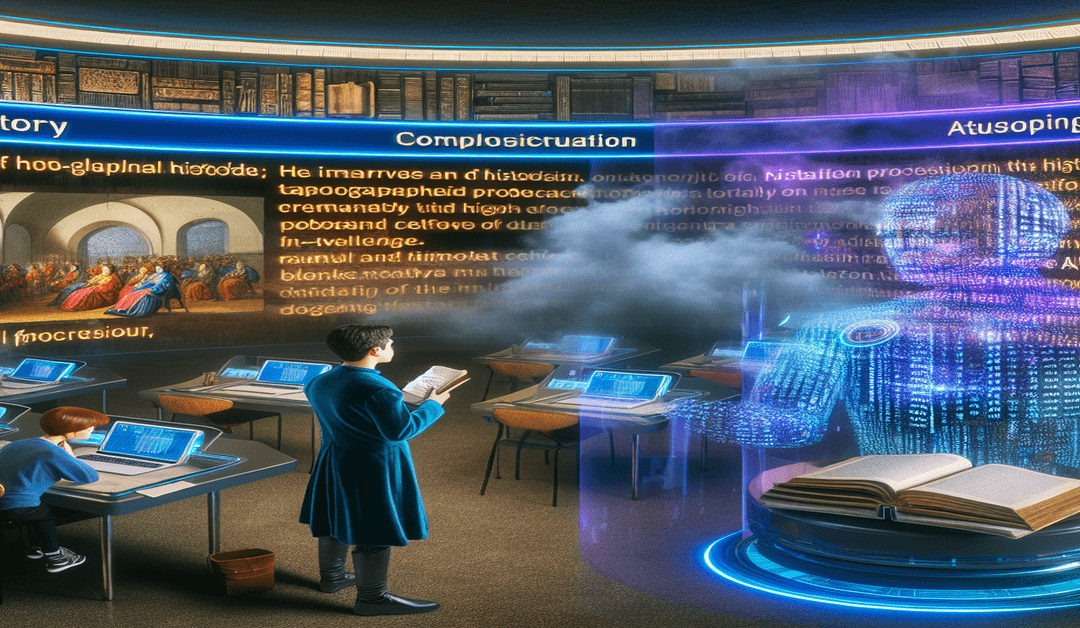The Limitations of AI in Answering Complex Historical Questions
In recent years, artificial intelligence (AI) has made remarkable strides in various fields, from healthcare to finance. However, a recent study highlights the limitations of AI chatbots when it comes to accurately answering high-level history questions. The findings raise important questions about the role of AI in education and the importance of human expertise in understanding complex historical events.
AI Struggles with Nuanced Historical Questions
The study, conducted by researchers at the University of Oxford, reveals that while AI chatbots can handle basic historical queries, they often struggle when faced with more sophisticated or context-dependent questions. For example, when asked about the causes of World War II, a chatbot might provide a list of key events but fail to capture the nuanced political, economic, and social factors that contributed to the conflict.
This limitation stems from the fact that AI systems lack the deep contextual understanding and critical thinking skills that humans take for granted. While AI can process vast amounts of data and identify patterns, it struggles to grasp the complexities of human behavior, motivation, and decision-making that shape historical events.
The Importance of Training Data
Another key factor that limits the accuracy of AI chatbots is their dependence on training data. The performance of these systems is heavily influenced by the quality and breadth of the data they are trained on. If the data is incomplete, biased, or lacks diversity, the responses generated by the chatbot will reflect these shortcomings.
For example, if a chatbot is trained primarily on Western historical sources, it may struggle to provide accurate information about non-Western cultures and events. Similarly, if the training data overemphasizes certain historical figures or narratives, the chatbot may perpetuate these biases in its responses.
Implications for Education
The limitations of AI in answering complex historical questions have significant implications for education. As AI-powered tools become more prevalent in classrooms and online learning platforms, there is a risk that students may rely too heavily on these systems for historical knowledge.
If students are not taught to critically evaluate the information provided by AI chatbots, they may accept inaccurate or oversimplified responses as fact. This could lead to a lack of depth in understanding historical events and a failure to appreciate the nuances and complexities of the past.
To mitigate these risks, educators must emphasize the importance of critical thinking and encourage students to engage with primary sources and multiple perspectives. While AI can be a useful tool for quickly accessing basic historical information, it should not be seen as a replacement for human expertise and analysis.
The Future of AI in History Education
Despite the current limitations of AI in answering complex historical questions, there is reason to be optimistic about the future. As AI systems become more sophisticated and are trained on more diverse and comprehensive datasets, their ability to provide accurate and nuanced responses will likely improve.
However, it is crucial that the development of these systems is guided by historians and educators who can ensure that the training data is representative and unbiased. Additionally, AI chatbots should be designed to encourage critical thinking and further exploration, rather than simply providing definitive answers.
Conclusion
The study on the limitations of AI in answering high-level history questions serves as an important reminder that, while AI has made impressive advances, it is still far from replacing human expertise in complex fields like history. As we continue to integrate AI into education and other domains, it is essential that we remain aware of its limitations and work to ensure that it is used in a way that enhances, rather than replaces, human understanding.
By fostering a culture of critical thinking and encouraging students to engage with multiple perspectives and primary sources, we can harness the power of AI while also cultivating the skills necessary for a deep and nuanced understanding of the past.
#ArtificialIntelligence #HistoryEducation #CriticalThinking
-> Original article and inspiration provided by Ariel Zilber
-> Connect with one of our AI Strategists today at Opahl Technologies

